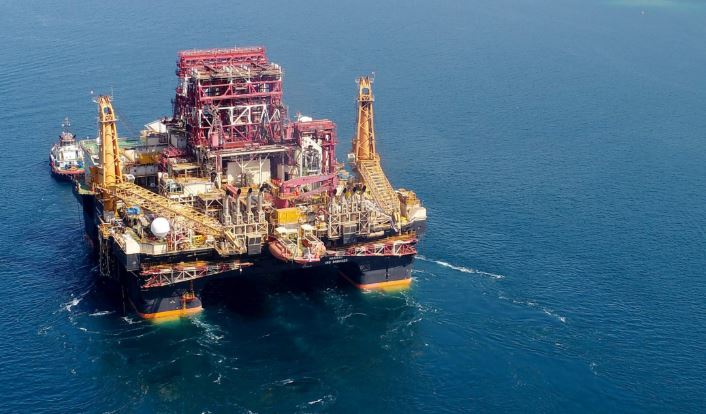The net profit of the Nigerian oil and gas industry dropped by 27.08 percent year-on-year in the second quarter (Q2) after President Bola Tinubu removed the petrol subsidy during the same period.
Tinubu, during his inauguration on May 29, 2023, announced that his administration would no longer subsidise premium motor spirit (PMS), also known as petrol.
While the federal government, under ex-President Muhammadu Buhari, budgeted for the subsidy to fund petrol consumption in the first six months of 2023, Tinubu immediately ended it after he was sworn in.
Prior to May 29, Nigeria had been subsidising petrol to control and keep pump prices low in filling stations across states. After the removal, the cost of a litre of the product jumped from N189 to N500 in Q2 — before rising further to between N568 and N600 in July.
Advertisement
Despite the price increase, the sector was unable to grow its bottom line, as net profit declined by N9.02 billion year-on-year.
This is according to TheCable Index analysis of the Q2 financial statements of five oil and gas companies listed on the stock market: Eterna, Seplat Energy, Conoil, Total Energies, and MRS Oil Nigeria.
Based on the financials of the companies, the sector recorded N24.31 billion in profit after tax (PAT) between April and June this year. This is a 27.08 percent decline compared with the N33.34 billion net profit generated in the same period in 2022.
Advertisement
The decrease in PAT was on the back of a 31.63 percent year-on-year increase in the cost of sales, after the firms spent N298.97 billion on customs duties, transportation of supplies, operational and maintenance, barging and trucking, amongst others.
This indicates a whopping increase of N71.84 billion in expenses, relative to the N227.13 billion the industry expended on the cost of sales in the same period in 2022.
Consequently, the cost of sales gulped 77.68 percent of the industry’s revenue during the review period — up from 72.05 percent recorded in Q2 last year.
Further analysis revealed that the 31.63 percent increase in the cost of sales was more than the 22.08 percent growth recorded in the industry’s turnover in the second quarter of this year.
Advertisement
They generated a combined N384.86 billion in revenue in Q2 2023, surpassing the N315.24 billion grossed within the same period last year.
HOW THE COMPANIES PERFORMED
CONOIL
Conoil closed the review period with the highest growth in net profit, despite recording the most increase in cost compared to its market rivals.
Advertisement
The firm’s costs rose by 75.02 percent year-on-year, having spent N45.98 billion in Q2 this year, against the N26.27 billion cost posted in Q2 2022.
This is more than the 73.35 percent year-on-year increase Conoil recorded in its revenue. The firm reported N52.17 billion in income between April and June 2023, exceeding the N30.09 billion turnover posted in last year’s second quarter.
Advertisement
Conoil’s skyrocketing costs had little or no impact on the firm’s bottom line — which jumped 158.58 percent, from N1.25 billion in Q2 last year to N3.24 billion in Q2 2023.
MRS OIL
Advertisement
MRS Oil saw its profit after tax uptick to N835.30 million in Q2 2023. This is 112.40 percent year-on-year growth when compared with the N393.26 million posted in the corresponding period last year.
The oil company managed to grow its net profit after keeping its costs to a single-digit growth compared with other oil companies that reported a double-digit increase.
Advertisement
A meagre 3.75 percent rise was seen in MRS’ cost of sales within the period in review, as it took N23.76 billion to keep its products available in the market — in contrast to the N22.90 billion disbursed in Q2 2022.
Following the amount spent, MRS generated N28.86 billion in revenue in Q2 this year, a 16.54 percent improvement on the N24.76 billion turnover pocketed in the same period last year.
TOTAL
From April to June 2023, Total raked in N139.32 billion in revenue, which rose 25.06 percent year-on-year, from N111.40 billion pulled in the corresponding quarter in 2022.
Also, a steep rise of 24.15 percent was noted in the company’s cost of sales, as the oil firm reported N119.30 billion production cost in Q2 2023, against N96.09 billion posted in the same period last year.
Amid the increase in Total’s cost of sales, the company managed to increase its profit after tax by 11.08 percent year-on-year from N4.16 billion to N4.62 billion.
SEPLAT
Analysis of Seplat’s financials showed the company suffered a 42.53 percent or N11.54 billion decline in its profit after tax.
Seplat’s bottom line settled at N15.60 billion in the quarter ending June 2023, down from the N27.15 billion reported in Q2 the previous year.
The significant drop in Seplat’s net profit was on the back of a 44.08 percent increase in the company’s cost of sales, which gulped N76.81 billion in Q2 2023, contrasting with N53.31 billion spent in last year’s second quarter.
This burdened the net profit, as the cost of sales outpaced Seplat’s income growth of 6.54 percent, having generated N126.34 billion in revenue in Q2 this year, inching higher from the N118.58 billion turnover grossed in the same period the previous year.
ETERNA
Eterna was the only listed oil and gas company that failed to record profit after tax, suffering N7.02 billion net loss during the review period, compared to N375.11 million net profit reported in Q2 2022.
The loss followed a 15.99 percent year-on-year increase in Eterna’s cost of sales, which consumed N33.12 billion in Q2 2023. This is more than the N28.55 billion posted in the same quarter of the preceding year.
Note that in the same period this year, Eterna increased its revenue by 25.54 percent or N7.76 billion to N38.15 billion in turnover, up from N30.39 billion posted in Q2 of the previous year.
OIL COMPANIES’ CONTRIBUTION TO GDP DECLINES
To further buttress the struggle of the oil and gas industry, the sector failed to increase its contribution to the gross domestic product (GDP) in the quarter under review.
According to data obtained from the National Bureau of Statistics (NBS), the sector contributed N2.94 trillion to the GDP. This is below the N3.41 trillion reported in Q1 2023.
The bureau disclosed that the GDP contribution in Q2 this year also fell short of the N3.38 trillion recorded in the second quarter last year.
“The real growth of the oil sector was –13.43% (year-on-year) in Q2 2023, indicating a decrease of 1.66% points relative to the rate recorded in the corresponding quarter of 2022 (-11.77%),” the NBS said.
“Growth also decreased by 9.22% points when compared to Q1 2023 which was –4.21%. On a quarter-on-quarter basis, the oil sector recorded a growth rate of -14.12% in Q2 2023.
“The Oil sector contributed 5.34% to the total real GDP in Q2 2023, down from the figure recorded in the corresponding period of 2022 and down from the preceding quarter, where it contributed 6.33% and 6.21% respectively.”
The bureau said the decline in the sector’s earnings was due to the dip in crude oil production, which stood at 1.22 million barrels per day (bpd) in Q2 2023.
This, the NBS said is “lower than the daily average production of 1.43mbpd recorded in the same quarter of 2022 by 0.22mbpd and lower than the first quarter of 2023 production volume of 1.51 mbpd by 0.29mbpd”.
In addition, the Nigerian Midstream and Downstream Petroleum Regulatory Authority (NMDPRA) said fuel consumption in the country fell from an average of 66.9 million litres daily to an average of 18.5 million litres per day from April to June 2023.
Add a comment






